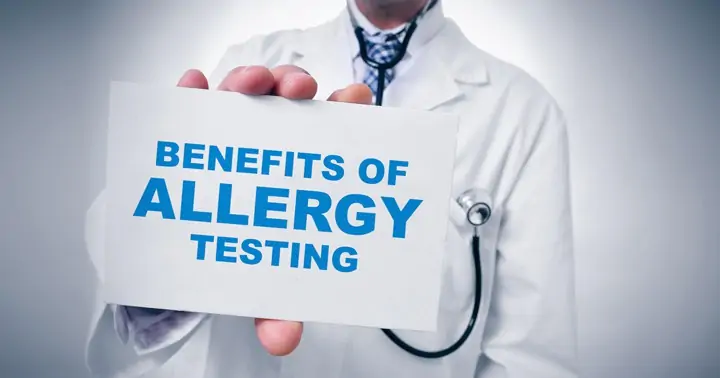IgE & Inhalant Allergy Testing
Antigens found in the environment and in specific foods can sometimes have life-threatening consequences for children and adults. IgE, or immunoglobulin E allergies, occur when your body is exposed to these airborne or food allergens. As soon as you come into contact with antigens, your body produces antibodies to ward off these foreign substances.
Antibodies are proteins made by your immune system. IgE antibodies are found in your mucous membranes, lungs and skin. They destroy harmful antigens such as bacteria, allergens and disease-causing viruses. When this happens, your body develops an allergic reaction.
Allergic reactions are simply your body’s overreaction to antigens. The reaction often manifests in symptoms such as sinus congestion, difficulty with breathing and a tight chest, hives or a runny nose. Someone who has developed a food allergy can develop adverse symptoms such as severe abdominal pain, vomiting, nausea, heartburn, diarrhea or persistent heartburn almost immediately after consuming certain foods. If you’re allergic to the allergens in peanuts, your body could develop an anaphylactic reaction, which is potentially life-threatening.
IgE and inhalant allergy testing is vital to anyone who suspects they may have a food or airborne allergy, as it could save their life. Testing for different types of IgE antibodies is important, as each type is unique to each specific allergen.
Please consult the biostation for allergy diagnosis and treatment. We specialize in allergy testing and can provide rapid results and healing help for IgE food and inhalant allergies.
What the Allergen-specific IgE Test Includes
Your doctor or technician will generally perform a group of mini-panel or mini-screen tests. You may be tested for allergen reactive foods such as shellfish, peanuts or milk. Tests will also be conducted for dust mites, pollen, mold, pet dander, insect venom and specific medicines such as penicillin.
How Childhood and Adult Allergies Differ
You’ll often find more children with food allergies than adults. The reason for this is that children tend to outgrow their allergies by the age of 10 years. Approximately 6% of children have IgE food allergies in comparison with the 1-2% of adults who have them.
However, nobody can outgrow reactive foods with heat-resistant allergens such as fish, nuts and shellfish. If you’re an adult who develops an adverse reaction to these foods, your best bet would be to avoid these foods altogether.
If you’ve been avoiding a reactive food for two years, you could become non-reactive to it. You'll still be atopic though, meaning that you would still test positive for the allergen in the serum test. Your body will also still have IgE antibodies for that specific food, but you may not develop an allergic reaction to the food.
How IgE Food and Inhalant Allergy Testing is Conducted
IgE food allergy tests are conducted via a serum blood test. This advanced test measures 25 foods and 36 inhalants to help identify numerous allergy triggers and possible reactions. You should avoid taking an oral antihistamine for 2-3 days before testing, as an antihistamine could affect your skin’s reaction.
Foods to Avoid if You Suspect an IgE Food Allergy
The list of potentially allergenic foods to avoid is extensive. They include condiments such as mustard and its by-products, breads containing lupin flour, products containing nuts, celery and its by-products, dairy products including cow’s milk and products with lactose, and soybeans.
You should also steer clear from cereals with gluten or any products containing gluten, as well as eggs. Shellfish is something to definitely avoid, as well as fish. Contact the biostation for further information on allergy relief and our advanced testing. Your lgE Food and Inhalant Allergy Test results help guide us in customizing total wellness therapies and a healthy living plan that will deliver the best outcome for you.
 East Delray, Florida
East Delray, Florida West Delray, Florida
West Delray, Florida The Boca Raton, Florida
The Boca Raton, Florida Midtown Miami, Florida
Midtown Miami, Florida Carillon Wellness Resort
Carillon Wellness Resort  Williams Island
Williams Island  Midtown Tampa, Florida
Midtown Tampa, Florida Life Time
Life Time Grand Wailea
Grand Wailea  NOW OPEN
NOW OPEN  COMING SOON
COMING SOON 
